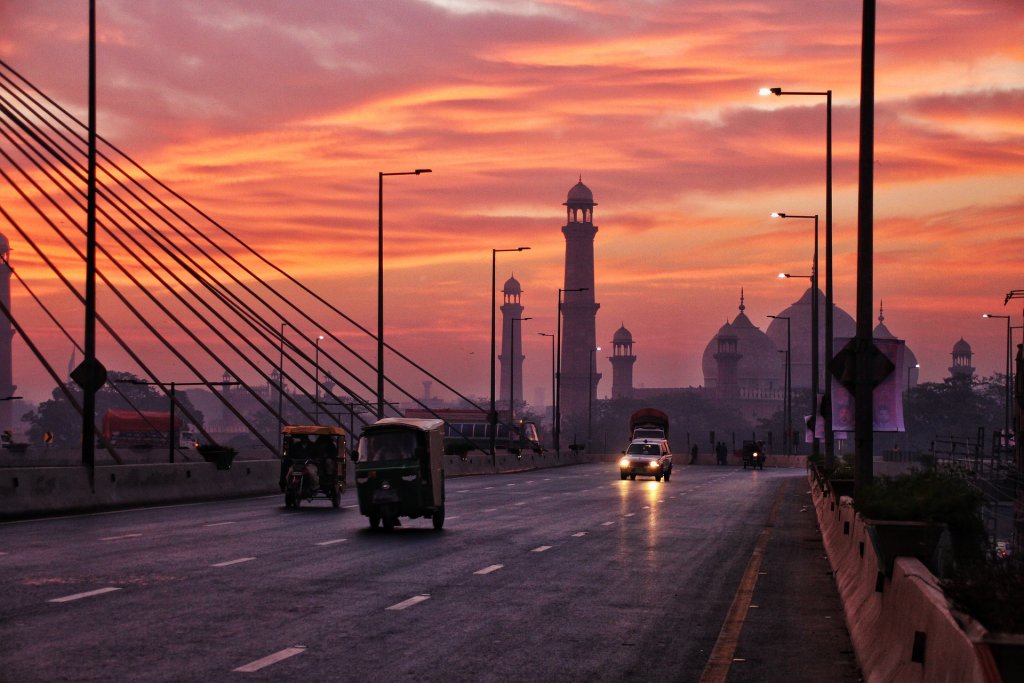
Pakistan is home to 1.4 million registered refugees, mostly Afghans, making it the fourth highest refugee-recipient country in the world after Turkey, Colombia and Uganda. This does not include unregistered refugees which have the impact of shoring Pakistan’s refugees figures close to three million in total. Pakistan is not a signatory to the 1951 Refugee Convention or the 1967 Protocol but it has respected the protocols of international refugee protection.
Pakistan’s approach towards refugees reveals a mix of humanitarian and security impulses. One of the key problems relates to the refugees’ statelessness condition which renders them incapable of receiving socio-economic benefits from the host state. This compounds the dilemma for refugees as worsening security conditions forces them to flee their home state to which they cannot return while domestic conditions in the host state, including the latter’s socio-economic vulnerabilities, adds to the refugees’ anxieties. Best practices emanating from the United Nations High Commission for Refugees (UNHCR) give substantive importance to the naturalisation of refugees as citizens of the host state. Citizenship is seen as a route towards the social, political and economic integration of refugees into the host society. In this regard, the ex-Prime Minister Imran Khan soon after assuming power in 2018 announced that, “Afghans whose children have been raised and born in Pakistan will be granted citizenship, inshallah (God willing) because this is the established practice in countries around the world.”
Statistics reveal that ‘more than half (52 percent) of the registered refugee population are children, including 197,428 (15 percent) being four years of age or under. Only 4 percent of those registered are 60 years of age or older. Women, children and older represent 76 percent of the population.’ These statistics are important because they indicate an increasingly younger generation of Afghan refugees who were born and raised in Pakistan. Most crucially, for this refugee population group, the home country, Afghanistan represents an alien society, one which they have not lived in, nor visited, nor do they feel an emotional attachment to live and work there. In short, the host society now enamours their existence as individuals, however they remain handicapped as a consequence of legal and administrative formalities.
The humanitarian impulse entails attending to the basic needs of refugees including food, clothes, shelter and other socio-economic needs for which a targeted action is warranted. This targeted action was undertaken between April and December 2021, officially known as the Documentation Renewal and Information Verification Exercise (DRIVE), a joint effort conducted by the Ministry of States and Frontier Regions (SAFRON), the Chief Commissionerate Commissioner for Afghan Refugees (CCAR), and UNHCR with the technical assistance of the National Database and Registration Authority (NADRA).The purpose of the exercise was to update and verify the data of Afghans holding a Proof of Registration (PoR) card. This was the first large-scale effort to verify the status of refugees in the last 10 years. The documentation was a much needed effort to elicit true numbers and also posit Pakistan’s commitment to attending to the rehabilitation of refugees. Under the new registration drive, Afghan refugees were provided smart identity cards, which legitimised their status, enabling them faster and safer access to health and education facilities as well as financial services. In 2019, the UNHCR in collaboration with a local NGO initiated the Artisans’ Skills Development Projects for Refugees in Karachi. The initiative included supporting and training the Afghan refugee women for small and micro enterprises across the country in the fields of embroidery, tailoring and jewellery. The purpose of the initiative was to make Afghan refugee women financially self-reliant. Civil society organisations remain key actors in attending to the plights and woes of Afghan refugees. A key element of such activities is they breed much needed social cohesion and well-being of the refugee population. Not only refugees but such measures also sensitise the local people to the basic human needs of the refugee population that is living at the fringes of society.
Afghan refugees and security concerns
Security reasons are also imperative in Pakistan’s attitude towards refugees specially with fears of negative spillover including crime, terrorism and infiltration of rogue actors. The securitisation of Afghan refugees as criminal, terrorist and deviant actors, a claim also repeated sparingly by the political elite, bolstered the government’s drive to construct a fence along the Pakistan-Afghanistan border. In 2014, the Khyber Pakhtunkhwa police incriminated the Afghan refugees for a high incidence of crime not only in Peshawar but in all the 25 districts of Khyber Pakhtunkhwa. The police argued that the solution entails a restriction in the movement of Afghan refugees in order to apply a brake on murders, thefts and kidnappings for ransom. The predicament of Afghan refugees and their securitisation became increasingly worrisome after Pakistan faced one of its most dreaded terrorist attack at the Army Public School in Peshawar in December 2014. The attack which killed over 130 students resulted in a crackdown on Afghan refugees across the country. The crackdown compelled many Afghan refugees to return to their home country.
Recently, the UN Secretary General applauded the efforts of Pakistan in attending to the plight of Afghan refugees in the last 40 years. Pakistan’s humanitarian-securitisation impulse on Afghan refugees is intimately connected with the perennial instability that continues to plague Afghanistan. After the withdrawal of American forces from Afghanistan, hundreds and thousands of Afghan refugees made their way to Pakistan, from where Pakistan facilitated their onward travel to Western countries. Pakistan has taken the plea that the international community needs to undertake effective and constructive social and economic rehabilitation through multilateral aid in Afghanistan in the post-US withdrawal scenario, as Afghanistan remains a ravaged and war-torn society. The nation- and state-building policies that the United States undertook in Afghanistan since 2001 remained ineffective due to local Afghan political elites who maintained a neopatrimonial political order leading to further polarisation of Afghan society. Thus, for Pakistan, an amicable solution to the continual influx of Afghan refugees requires political and socio-economic stability in Afghanistan. A key question in this regard is whether the Taliban government and the international community can move their relationship forward through dialogue with the former attending to the fears of the latter, which relate primarily to preventive mechanisms with respect to the outflow of terrorism from Afghanistan.
Conclusion
While 90% of the border fencing with Afghanistan stands completed, the Pakistani state, political parties and civil society would do well by striking a balance between the humanitarian and securitisation impulses realising that refugees are a vulnerable people at the bottom end of the socio-economic scale, desiring to live in peace and made homeless by extraneous wars not of their own making. The humanitarian impulse allows Pakistan to work with international organisations such as the UNHCR and other local NGOs in order to attend to the basic needs of refugees. In doing so, it also aids in the building of a soft image of Pakistan; one which is concerned not only about refugees in its own country but is also desirous of peace and security in neighbouring Afghanistan. Pakistan understands that the root cause of increased refugees in its national space is intimately linked with instability in Afghanistan. Peace and stability in Afghanistan also attends to Pakistan’s geopolitical anxieties which emanate from a long, porous and perilous border, a historical legacy of British colonialism. Thus, domestic stability in Afghanistan also implies a stabilised geopolitics for Pakistan. Moreover, the security element is not only interstate and transnational but also has domestic implications. These relate to local-refugee interactions and how the refugee issue becomes securitised as the Afghan ‘other’ is constructed through a partisan discourse of ‘crime’, ‘economic burden’ and ‘terrorism.’ This othering of Afghan refugees has the dire impact of undoing humanitarian efforts. Going into the future, Pakistan’s key challenge exists in finding a durable solution to the status of refugees, a majority of whom were born in Pakistan and reclaim the country as their own. If repatriated through forced measures or securitisation discourses, the Pakistani state stands to lose the moral high ground through which it rehabilitated hundreds of thousands of refugees into its fold, despite limited resources.

Dr. Farhan Siddiqi, Quaid-I-Azam University
Farhan Hanif Siddiqi is Associate Professor and Director in the School of Politics and International Relations at the Quaid-i-Azam University, Islamabad. In addition, he has also worked as Research Fellow at the Middle East Research Institute in Erbil, the Kurdistan Region of Iraq. His research interests border on ethnicity, conflict resolution, theories of International Relations, foreign policy and strategic dynamics in South Asia. He is the author of, The Politics of Ethnicity in Pakistan: The Baloch, Sindhi and Mohajir Ethnic Movements (Routledge, 2012). His forthcoming co-authored book is titled, Introducing International Relations: Concepts, Theories and Practices (Oxford University Press, 2022).
To cite this work : Farhan Siddiqi “Major Security Challenges and Opportunities to Pakistan”, Panorama, Online , 08 August 2022, https://www.uikpanorama.com/blog/2022/08/08/pak-2/
Copyright@UIKPanorama. All on-line and print rights reserved. Opinions expressed in works published by the Panorama belongs to the authors alone unless otherwise stated, and do not imply endorsement by the IRCT, Global Academy, or the Editors/Editorial Board of Panorama.


